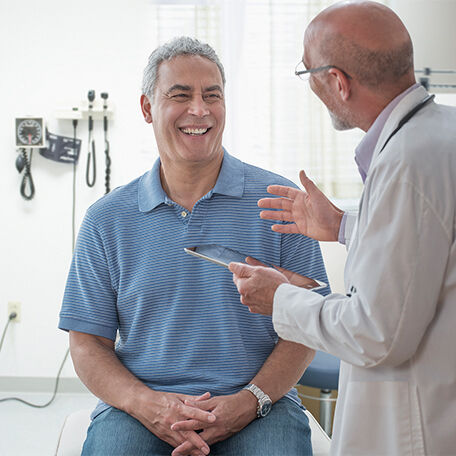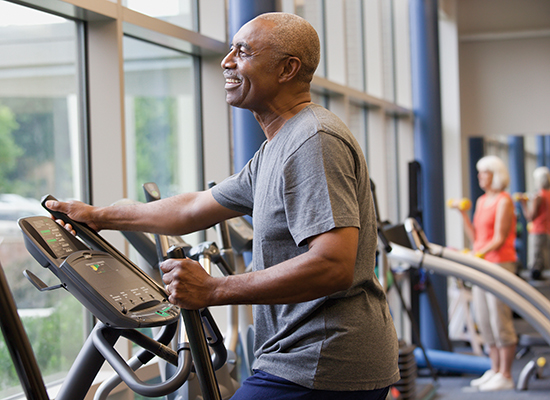Men’s Health Matters

Men’s Health Matters
March 8, 2022
5 tips to maintain overall wellbeing
(Family Features) While family history and age cannot be changed, there are everyday steps men can follow to take charge of their health, including prostate health, and maybe even prevent problems down the road.
Consider these tips to help lead a healthier lifestyle.
Get checked out regularly. Just because you’re healthy doesn’t mean you should eschew routine checkups, and that includes self-examinations. While regular visits to your health care provider can keep you up-to-date on preventative screenings and immunizations, getting to know your own body can have similar benefits.
Care for your prostate. If you’re experiencing frequent urination, a weak or slow urine stream, incomplete bladder emptying, difficulty or delay in starting urination or a urine stream that stops and starts, these may be signs you may be suffering from Benign Prostatic Hyperplasia (BPH), otherwise known as enlarged prostate.1 Enlarged prostate, which is non-cancerous and affects more than 40 million American men, can also cause loss of productivity and sleep, according to research published in the “Journal of Urology.”2,3 Medication is often the first line of treatment, but some patients may suffer uncomfortable side effects including dizziness, headaches and sexual dysfunction, which can prompt them to quit using their medications.4
“Many men living with BPH symptoms take prescription medications after they have been diagnosed, but relief can be inadequate and temporary,” said Dr. Peter Walter, M.D., urologist and paid consultant for Teleflex Incorporated, the manufacturer of the UroLift® System.
As one alternative to medication, an option like the UroLift System treatment is a minimally invasive procedure that doesn’t require any cutting, heating or removal of prostate tissue.5 A urologist places small implants to lift and move enlarged prostate tissue so it no longer blocks the urethra and can allow for normal urine flow. Most common side effects are mild to moderate, and patients generally can return to their normal routines with minimal downtime. For more information about treatment options, or to find a urologist near you who treats BPH, visit UroLift.com.

Focus on a more nutritious diet. Aim for a pattern of healthier eating that includes more fruits, vegetables and leafy greens such as lettuce, spinach, kale and broccoli, which can help keep you – and your prostate – healthy.6 Also try to cut back on consumption of red meat – specifically processed meat – as well as salt and sweets.
Know your numbers. Be sure to discuss your family history and lifestyle with your doctor as he or she may recommend screenings for diseases and common ailments. Be sure to keep up with these screenings and check in with your doctor to make sure you’re accounting for milestone ages and common ailments associated with aging.
Make exercise a priority. Exercise is a key to maintaining quality of life. The American Heart Association recommends at least 150 minutes per week of moderate-intensity aerobic activity for adults.7 Even shorter increments of physical activity multiple times a day such as a walking meeting, opting for the stairs instead of the elevator or parking farther from your destination can provide health and stress-relieving benefits.
Photos courtesy of Getty Images
1. Speakman et al. 2014 BJUI International
2. Berry, J Urol 1984 and 2017 U.S. Census population estimates.
3. NeoTract US Market Model estimates for 2018 based on IMS Health Drug and Procedure data
4. AUA BPH Guidelines 2003, 2010, 2018
5. Roehrborn J Urol 2013 LIFT Study
6. Tips for Keeping a Healthy Prostate. (n.d.) Retrieved from https://www.hopkinsmedicine.org/health/wellness-and-prevention/tips-for-keeping-a-healthy-prostate
7. www.heart.org. (2019). American Heart Association Recommendations for Physical Activity in Adults and Kids. [online] Available at: https://www.heart.org/en/healthy-living/fitness/fitness-basics/aha-recs-for-physical-activity-in-adults





























































































































































